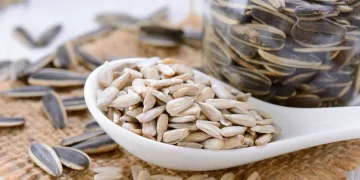Sunflower oil is one of the most popular vegetable oils used in kitchens worldwide. Known for its light flavor and high smoke point, it’s often used for frying, baking, and salad dressings. But in recent years, questions have arisen: Is sunflower oil bad for you, or is it a healthy choice? The answer depends on the type of sunflower oil and how it’s consumed.
What Is Sunflower Oil?
Sunflower oil is extracted from sunflower seeds. It comes in different varieties based on the fatty acid composition:
High-linoleic sunflower oil: Rich in omega-6 polyunsaturated fats.
Mid-oleic sunflower oil: A balance of omega-6 and heart-healthy monounsaturated fats.
High-oleic sunflower oil: Mostly monounsaturated fats, considered the healthiest option.
The Benefits of Sunflower Oil
When consumed in moderation, sunflower oil can offer several health benefits:
Rich in Vitamin E – An antioxidant that protects cells from damage.
Supports heart health – High-oleic sunflower oil may help lower LDL (bad) cholesterol.
Neutral flavor & high smoke point – Great for cooking, frying, and baking.
Skin and hair benefits – Often used in skincare for its moisturizing properties.
The Concerns About Sunflower Oil
While sunflower oil isn’t inherently “bad,” there are some potential downsides to consider:
High in omega-6 fatty acids: Consuming too much omega-6 compared to omega-3 can trigger inflammation, linked to heart disease and chronic conditions.
Processed versions: Refined sunflower oils may lose nutrients and contain trace amounts of harmful compounds if overheated repeatedly.
Calories and fat content: Like all oils, it’s calorie-dense. Overuse can lead to weight gain.
Is Sunflower Oil Bad for You?
The truth is: sunflower oil is not bad for you if consumed in moderation and if you choose the right type.
Better choice: High-oleic sunflower oil is the healthiest option, offering more stable fats and heart benefits.
Use in moderation: Limit deep-fried foods and balance your diet with omega-3-rich foods (like salmon, chia seeds, flaxseeds).
Avoid over-heating: Don’t reuse oil multiple times, as this can create harmful free radicals.
Healthy Alternatives to Consider
If you’re looking to diversify your cooking oils, consider:
Olive oil – Great for salads and low-to-medium heat cooking.
Avocado oil – High smoke point, rich in monounsaturated fats.
Coconut oil – Good for baking, though best in moderation.
















